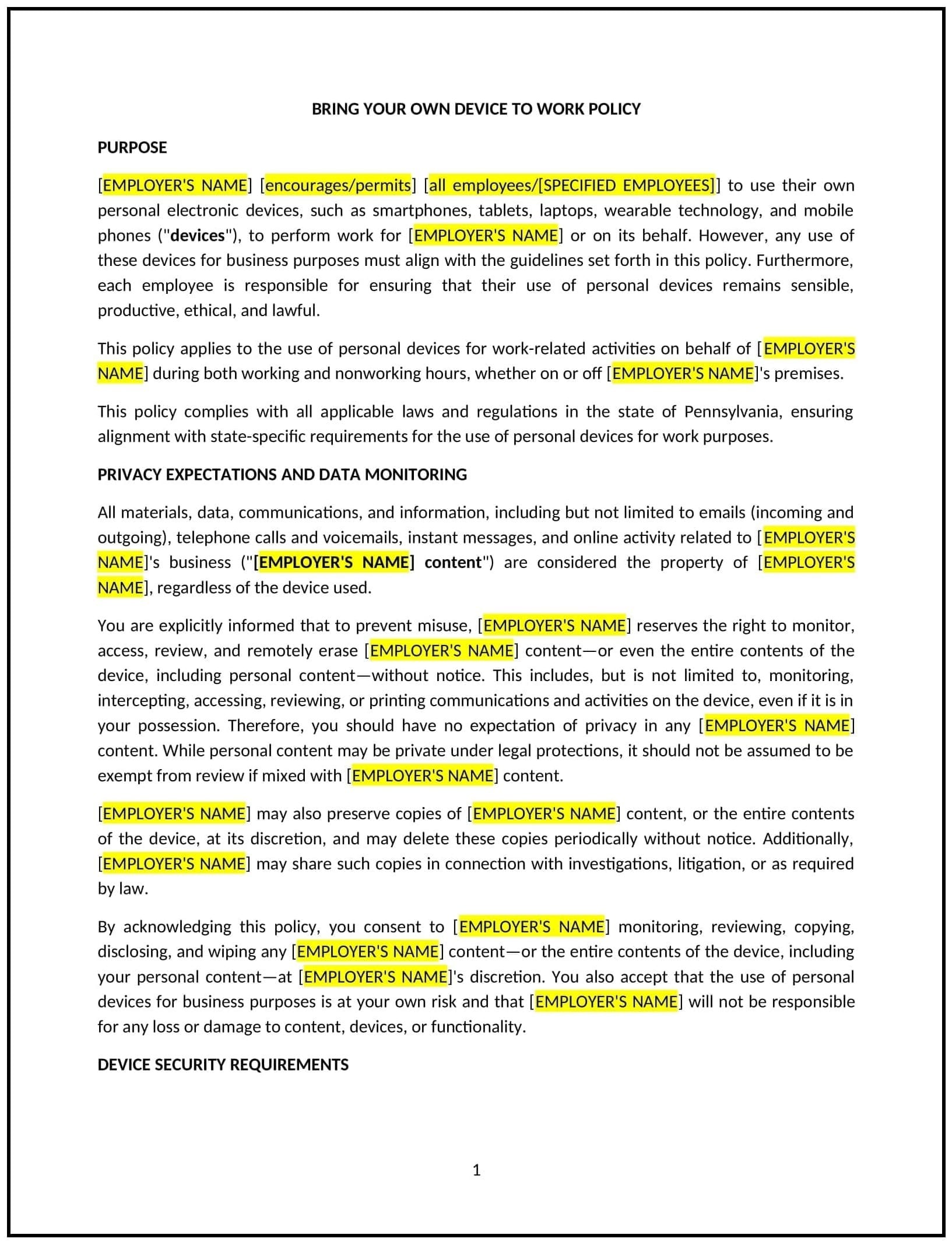Bring your own device to work policy (Pennsylvania): Free template
Got contracts to review? While you're here for policies, let Cobrief make contract review effortless—start your free review now.

Customize this template for free
Bring your own device to work policy (Pennsylvania)
This bring your own device (BYOD) policy is designed to help businesses in Pennsylvania manage the use of personal devices for work purposes while protecting company data and ensuring operational efficiency. Whether employees are using smartphones, laptops, or tablets, this template outlines clear guidelines for using personal devices responsibly and securely in the workplace.
By using this template, businesses can create a balanced approach to BYOD practices that promote flexibility, protect sensitive information, and align with Pennsylvania-specific workforce needs.
How to use this bring your own device to work policy (Pennsylvania)
- Define acceptable use: Specify which devices and activities are permitted under the policy, such as accessing company email, files, and approved applications.
- Establish security requirements: Outline the mandatory security measures for personal devices, such as password protection, encryption, and antivirus software.
- Clarify data ownership: Address how company data stored on personal devices will be managed, including access, retrieval, and deletion processes.
- Include reimbursement guidelines: If applicable, define how the organization will handle reimbursement for device usage costs, such as data plans or apps.
- Reflect Pennsylvania-specific considerations: Tailor the policy to align with local industries and workplace practices, ensuring relevance to Pennsylvania's diverse workforce.
Benefits of using a bring your own device to work policy (Pennsylvania)
A well-structured BYOD policy supports flexibility and security. Here's how it helps:
- Promotes flexibility: Allows employees to use their personal devices for work, increasing convenience and productivity.
- Protects company data: Implements security protocols to safeguard sensitive business information on personal devices.
- Encourages consistency: Establishes clear guidelines for device usage, reducing misunderstandings and potential risks.
- Reduces costs: Minimizes the need for company-provided devices by leveraging employees' personal technology.
- Aligns with workforce needs: Addresses Pennsylvania’s diverse business environment, including industries with hybrid or remote work setups.
Tips for using a bring your own device to work policy (Pennsylvania)
- Communicate expectations: Share the policy with employees during onboarding or as part of IT security training to ensure clarity on acceptable device usage.
- Train employees: Provide training on secure device usage, including recognizing phishing attempts and maintaining device security.
- Monitor compliance: Use tools to ensure employees comply with security requirements and address potential risks proactively.
- Define device support: Clarify the level of IT support the company will provide for personal devices used for work purposes.
- Review periodically: Update the policy to reflect changes in Pennsylvania labor laws, technological advancements, or workplace practices.